
The Hillsborough disaster was a fatal crowd crush at a football match at Hillsborough Stadium in Sheffield, South Yorkshire, England, on 15 April 1989. It occurred during an FA Cup semi-final between Liverpool and Nottingham Forest in the two standing-only central pens within the Leppings Lane stand allocated to Liverpool supporters. Shortly before kick-off, police match commander David Duckenfield ordered exit gate C to be opened in an attempt to ease crowding, which led to an influx of supporters entering the pens. This resulted in overcrowding of those pens and the fatal crush; with a total of 97 fatalities and 766 injuries, the disaster is the deadliest in British sporting history. Ninety-four people died on the day; another person died in hospital days later, and another died in 1993. In July 2021, a coroner ruled that Andrew Devine, who died 32 years later, after suffering severe and irreversible brain damage on the day, was the 97th victim. The match was abandoned and restaged at Old Trafford in Manchester on 7 May 1989; Liverpool won and went on to win that season's FA Cup.
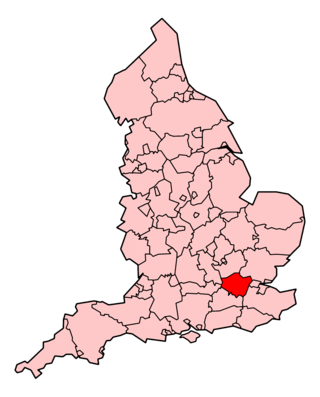
The London Ambulance Service NHS Trust (LAS) is an NHS trust responsible for operating ambulances and answering and responding to urgent and emergency medical situations within the London region of England. The service responds to 999 phone calls across the region, and 111 phone calls from certain parts, providing triage and advice to enable an appropriate level of response.
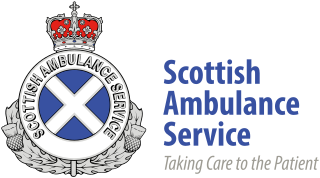
The Scottish Ambulance Service is part of NHS Scotland, which serves all of Scotland's population. The Scottish Ambulance Service is governed by a special health board and is funded directly by the Health and Social Care Directorates of the Scottish Government.

Emergency service response codes are predefined systems used by emergency services to describe the priority and response assigned to calls for service. Response codes vary from country to country, jurisdiction to jurisdiction, and even agency to agency, with different methods used to categorize responses to reported events.

The South Western Ambulance Service NHS Foundation Trust (SWASFT) is the organisation responsible for providing ambulance services for the National Health Service (NHS) across South West England. It serves the council areas of Bath and North East Somerset, Bournemouth, Christchurch and Poole Council, Bristol, Cornwall, Devon, Dorset, Gloucestershire, North Somerset, Plymouth, Isles of Scilly, Somerset, South Gloucestershire, Swindon, Torbay and Wiltshire.

Yorkshire Ambulance Service NHS Trust (YAS) is the NHS ambulance service covering most of Yorkshire in England. It is one of ten NHS Ambulance Trusts providing England with emergency medical services as part of the National Health Service it receives direct government funding for its role.

The South Central Ambulance Service NHS Foundation Trust (SCAS) is the ambulance service for the counties of Berkshire, Buckinghamshire, Oxfordshire and most of Hampshire. It is a foundation trust of the National Health Service, and one of ten NHS ambulance trusts in England. As of August 2022, SCAS is currently rated Inadequate by the CQC following multiple failings within the trust. SCAS is the only Ambulance Service in England to have received this rating.

The East of England Ambulance Service NHS Trust (EEAST) is an NHS trust responsible for providing National Health Service (NHS) ambulance services in the counties of Bedfordshire, Cambridgeshire, Essex, Hertfordshire, Norfolk and Suffolk, in the East of England region. These consist of approximately 6.2 million people across an area of 7,500 square miles (19,000 km2).

The Great Western Ambulance Service NHS Trust (GWAS) was a National Health Service (NHS) trust which provided emergency and non-emergency patient transport services to Bath and North East Somerset, Bristol, Gloucestershire, North Somerset, Swindon and Wiltshire, in South West England. It was formed on 1 April 2006 by the merger of the Avon, Gloucestershire and Wiltshire ambulance services. The ambulance service was acquired by neighbouring Foundation Trust South Western Ambulance Service (SWASFT) on 1 February 2013.
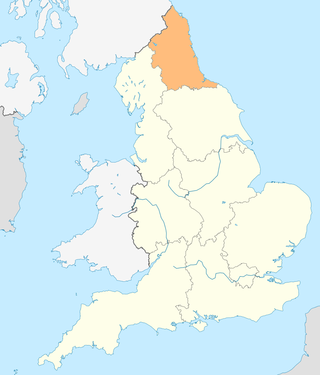
The North East Ambulance Service NHS Foundation Trust (NEAS) is an NHS foundation trust responsible for providing NHS ambulance services in North East England. Headquartered in Newcastle upon Tyne, NEAS provides emergency medical services to the metropolitan boroughs of Newcastle upon Tyne, Gateshead, North Tyneside, South Tyneside and City of Sunderland; the ceremonial counties of County Durham and Northumberland; and the area of North Yorkshire commonly known as Teesside. NEAS was formed on 1 July 2006, following the merger of the existing North East Ambulance Service with the Tees division of the Tees, East and North Yorkshire Ambulance Service (TENYAS). Northumbria Ambulance Service and County Durham Ambulance Service had previously merged on 1 April 1999.

The West Midlands Ambulance Service University NHS Foundation Trust (WMAS UNHSFT) is responsible for providing NHS ambulance services within the West Midlands region of England. It is one of ten ambulance trusts providing England with emergency medical services, and is part of the National Health Service.
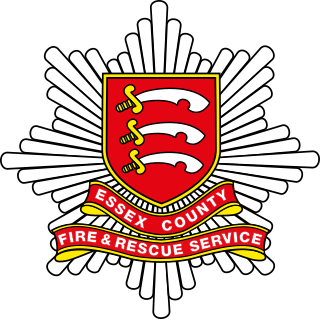
Essex County Fire and Rescue Service (ECFRS) is the statutory fire and rescue service for the county of Essex in the east of England, and is one of the largest fire services in the country, covering an area of 1,338 square miles (3,470 km2) and a population of over 1.7 million people.

Emergency medical services in the United Kingdom provide emergency care to people with acute illness or injury and are predominantly provided free at the point of use by the four National Health Services (NHS) of England, Scotland, Wales, and Northern Ireland. Emergency care including ambulance and emergency department treatment is only free to UK residents and a charge may be made to those not entitled to free NHS care.
National Health Service ambulance services provide free at the point of use emergency medical care to any person requiring treatment, regardless of immigration or visitor status, within the United Kingdom. These services are provided by National Health Services of England, Scotland, Wales and Northern Ireland. The current system comprises 14 NHS organisations: 11 ambulance services trusts cover the separate regions of England and; individual nationwide services cover Scotland, Wales and Northern Ireland respectively.
The Hazardous Area Response Team (HART) is a capability of the NHS ambulance services in the United Kingdom devoted to providing paramedic and enhanced medical care to patients in the "hot zone" of hazardous environments.
111 is a free-to-call single non-emergency number medical helpline operating in England, Scotland and Wales. The 111 phone service has replaced the various non-geographic 0845 rate numbers and is part of each country's National Health Service: in England the service is known as NHS 111; in Scotland, NHS 24; and in Wales, NHS111 Wales.

Hampshire Hospitals NHS Foundation Trust is an NHS foundation trust providing services in Hampshire and parts of west Berkshire. It was established in January 2012 as the result of the integration of Basingstoke and North Hampshire NHS Foundation Trust and Winchester and Eastleigh Healthcare Trust. It runs Andover War Memorial Hospital, Basingstoke and North Hampshire Hospital and Royal Hampshire County Hospital. (RHCH) The Trust also runs a private hospital on the same site as BNHH - the Candover Clinic.
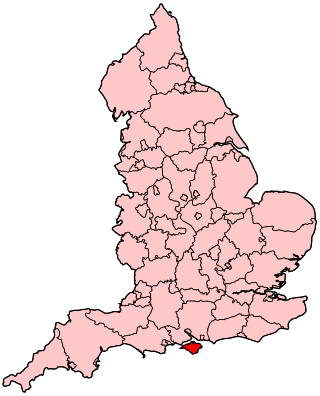
The Isle of Wight NHS Trust is an NHS trust which provides physical health, mental health and ambulance services for the Isle of Wight. The trust is unique in being the only integrated acute, community, mental health and ambulance health care provider in England. It runs St Mary's Hospital and the Isle of Wight Ambulance Service.
Healthcare in Yorkshire from 2016 was the responsibility of 19 clinical commissioning groups, which were replaced by integrated care systems in July 2022.
Professor Johanne Erica "Jo" Delahunty, is a British barrister, judge, and legal academic. Called to the bar in 1986, she specialises in family law and child protection. She has also been a Recorder since 2009, and was the Gresham Professor of Law from 2016 to 2020.














